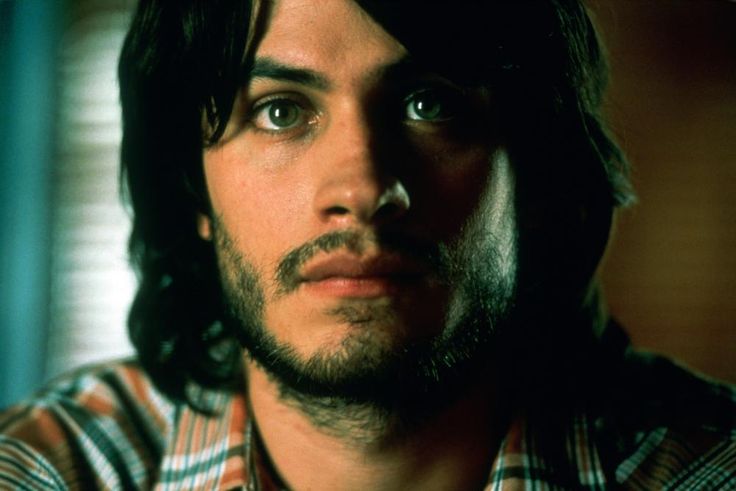
The term “coming-of-age” is a young person’s transition from being a child to being an adult, according to Wikipedia. A coming-of-age film shows the viewers this transformation. It is a standard way of telling the story through the eyes of an average teenager from an average family, going to an average school. It is considered easier to identify with a character who can be easily replaced by anyone.
The films on this list show growing up from a different point of view, either through an extraordinary character, or by using a unique visuality. In two words, they are singular and incomparable.
10. Carol (Todd Haynes, 2015)
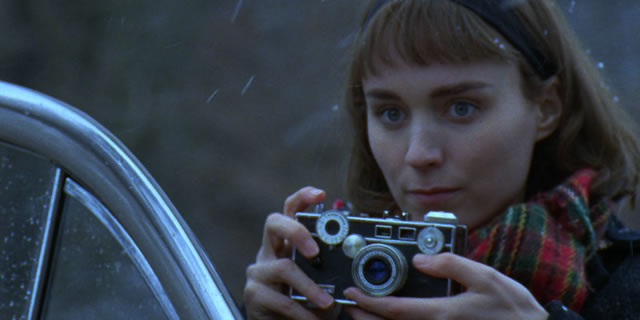
Set in the early 50s in New York, a girl named Therese Belivet (Rooney Mara) in her early 20s is living alone and working in a department store. One day, she meets the rich and mysterious Carol Aird (Cate Blanchett), and things start to complicate. Carol and her husband are divorcing, but he is still in love with her. When he realizes that he can’t rescue their marriage, he threatens to take their daughter away from Carol.
Carol tries to escape her life by going on a road trip across the country and takes Therese with her, which is when their romance starts.
“Carol” can be considered a coming-of-age film from the perspective of Therese, who is legally an adult, but hasn’t figured out who she is and what she wants to be. She is completely lost in the big city and in need of help in order to get her life together. When she falls in love with Carol, she finally understands why she felt so uncomfortable with her boyfriend, and why she felt like an outsider in society. At the end of the film, we see her as a grown woman who’s finally found her place in the world.
Todd Haynes brought Patricia Highsmith’s novel to the screen with extreme sensitivity and sympathy, and created a beautiful, colorful visual environment for the characters. They celebrate Christmas in the movie, which also gives a special atmosphere to the film through the images of pine trees, snow, Christmas lights, and the frequent use of red and green.
9. Submarine (Richard Ayoade, 2010)
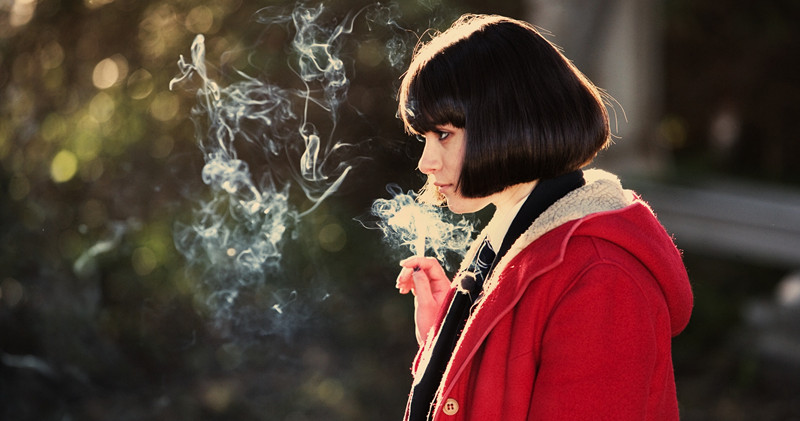
Take a Welsh boy. He is 15 years old. His name is Oliver Tate (Craig Roberts). He is in a phase where he is consciously trying to figure out who he is. He tried flipping coins and listening exclusively to French music. Sometimes he imagines how everyone would react if he suddenly died. Sometimes – quite often – he imagines being in a movie.
His father is a marine biologist and his mother is almost an actress who is also having an affair with the new neighbor, a new-age guru and her ex-boyfriend. Their son knows about everything, including the fact that his parents haven’t had sex in seven months.
He decides to take control of things before they get out of hand. His biggest concern, aside from his disinterested parents, is losing his virginity before his next birthday. He almost mathematically calculates that he has a chance with the girl he likes, and he does something mean in order to get her attention. It seems to work.
Oliver narrates his story with a poker face throughout the entire film, and Roberts makes it hilarious with his colorless voice and facial expressions. This is the feature directorial debut of Richard Ayoade, who adapted the script from Joe Dunthorne’s novel with the same title.
Ayoade doesn’t hide the pimples on his character’s faces, and he makes a funny, unforgettable movie using deadpan humor, quick jump cuts, and vivid colors that make the visual experience similar to a Wes Anderson film.
8. Baran (Majid Majidi, 2001)
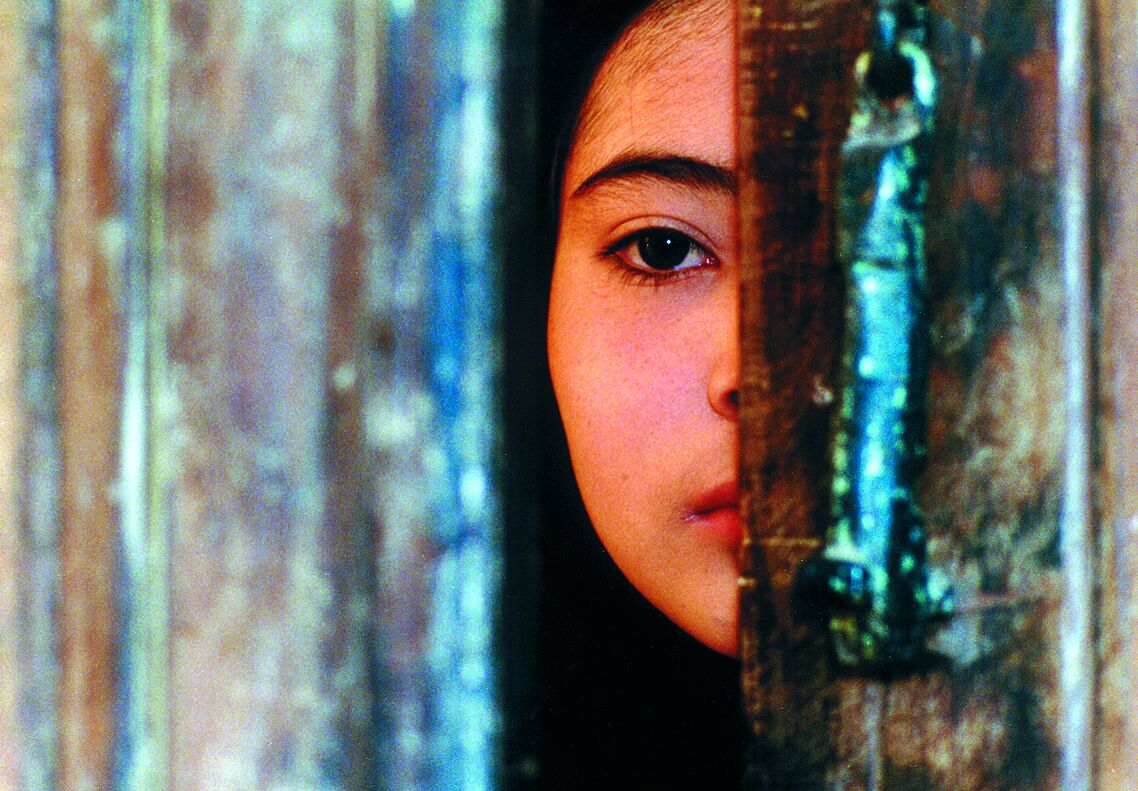
Majid Majidi could be easily called the Vittorio de Sica of Iran. His style of filmmaking is really similar to the Italian neorealism. He often uses non-professional actors for his films, and he shows the viewers the daily life and poverty in Iran. In the case of his film “Baran”, case, he shows the survival of an Afghan refugee family.
The main character, however, is an Iranian boy named Lateef (Hossein Abedini), who works at a building plot, cooks for the workers, and goes to the supermarket every day. The manager of the building gives work to a number of Afghan refugees, who can only work illegally. One day a young boy arrives who is not able to handle the heavy work, so Lateef must replace him.
The boy, Rahmat (Zahra Bahrami), cooks the lunch and does the shopping instead. He swears to take revenge, and constantly tries to cross Rahmat’s path. One time, he catches the boy combing his long hair, and suddenly he realizes that Rahmat is a girl. After that, he starts to see her differently.
His life changes forever. He slowly grows up to be a responsible young man. He has a purpose in life now; he starts to follows Rahmat – or rather Baran, beacuse that is her real name – from a distance. He doesn’t talk to her, but he silently and secretly devotes his life to her and does the best he can to financially help her and her family.
The director tells the story with beautiful simplicity, through the small aspects of daily life. The eyes, the look on a face, and the body language are the important images on screen in this film, and they express more precisely what is happening in the soul of each character than words.
7. Moonrise Kingdom (Wes Anderson, 2012)
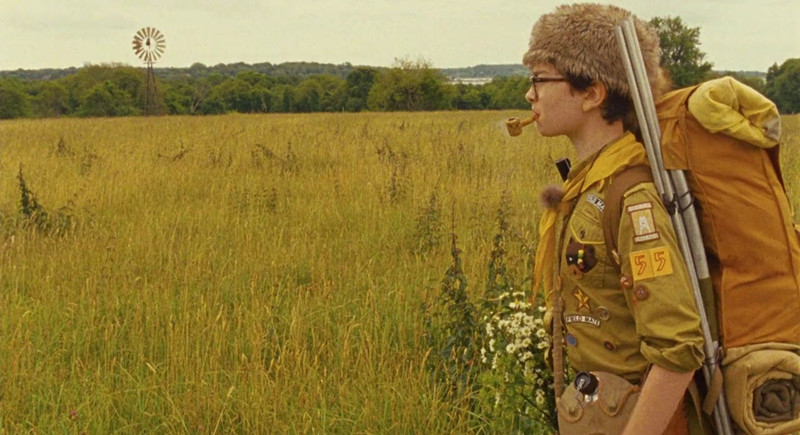
The film begins at a boy’s camp and the black sheep of the group, a very inventive loner named Sam (Gilman Jared), decides to escape and go on a secret adventure. The other boys at camp don’t like Sam much, so the search for him starts with moderate enthusiasm.
Sam’s real parents died and his foster parents don’t really like him either, so they care very little about his whereabouts. The driving force of his big escape is a girl named Suzy (Kara Hayward), who is a pen pal of Sam. They decided together to leave their pasts behind and go on an adventure together. They live on a small island so their journey cannot be too long, but long enough for children at the age of 12.
Wes Anderson uses strong colors, black humor, absurdity, and quick and short cuts in his movie to create the right mood. In “Moonrise Kingdom”, everything is upside-down. Children act like they are already grown up, and adults act like they are children. Everybody needs to change to get back to the right place. We can say that it is a coming-of-age story, where everything basically happens in reverse.
The cast makes the whole film even more hilarious, and it’s undeniably a parade of big-name actors. Bruce Willis plays an aging police officer in larges glasses, and Frances McDormand plays Suz’s mother. It also stars Bill Murray (he definitely hasn’t been left out), Harvey Keitel, Tilda Swinton, and last but not least, we get to see how Edward Norton can pull off knee socks and a scout’s uniform.
6. Life is Sweet (Mike Leigh, 1990)
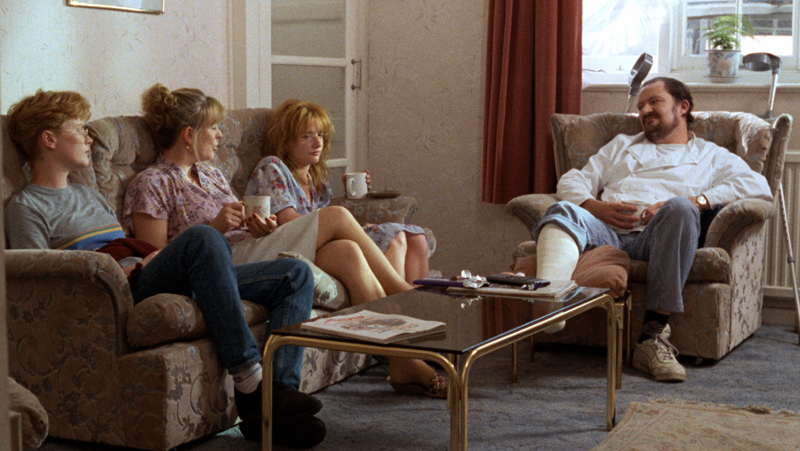
Incredibly funny and sometimes heartbreaking, Mike Leigh’s international breaktrough is just as sympathetic and wonderful as the rest of his work.
The film follows a working class family in North London over the course of one summer. The lovely and humorous parents (Alison Steadman and Jim Broadbent), their best friend and aspiring restaurant owner, Aubrey (Timothy Spall), and their 22-year-old twin daughters who are quite different from each other.
Natalie (Claire Skinner), a short-haired girl, seems to be over her teenage problems and has a balanced life, whereas Nicola (Jane Horrocks), who has long and messy hair, suffers from an eating disorder. She finds herself disgusting, does everything to appear messed up, and uses overly pretentious words to make very categoric statements about men, who she considers to be rapists, as well as the other people she considers either fascist or capitalist.
Her relationships with both her mother and her sister are very problematic. She refuses to love and to be loved. She has a boyfriend, but they don’t seem to care about each other; they have unexpectedly unconventional sex. Natalie often overhears when Nicola forces herself to vomit at night.
Among other things, the film shows the process of how Nicola grows a bit closer to reality and her family. The film is a coming-of-age story for the adults in the film as well. The parents have just as many dreams as teenagers, and they follow them with very optimistic, ageless attitudes.
There’s also Aubrey, whose personality isn’t really mature, either. Leigh brings family life to the screen naturally and intimately, as no other filmmaker has since Yasujiro Ozu. This is one of his funniest works, and an essential masterpiece for everyone who loves British cinema.